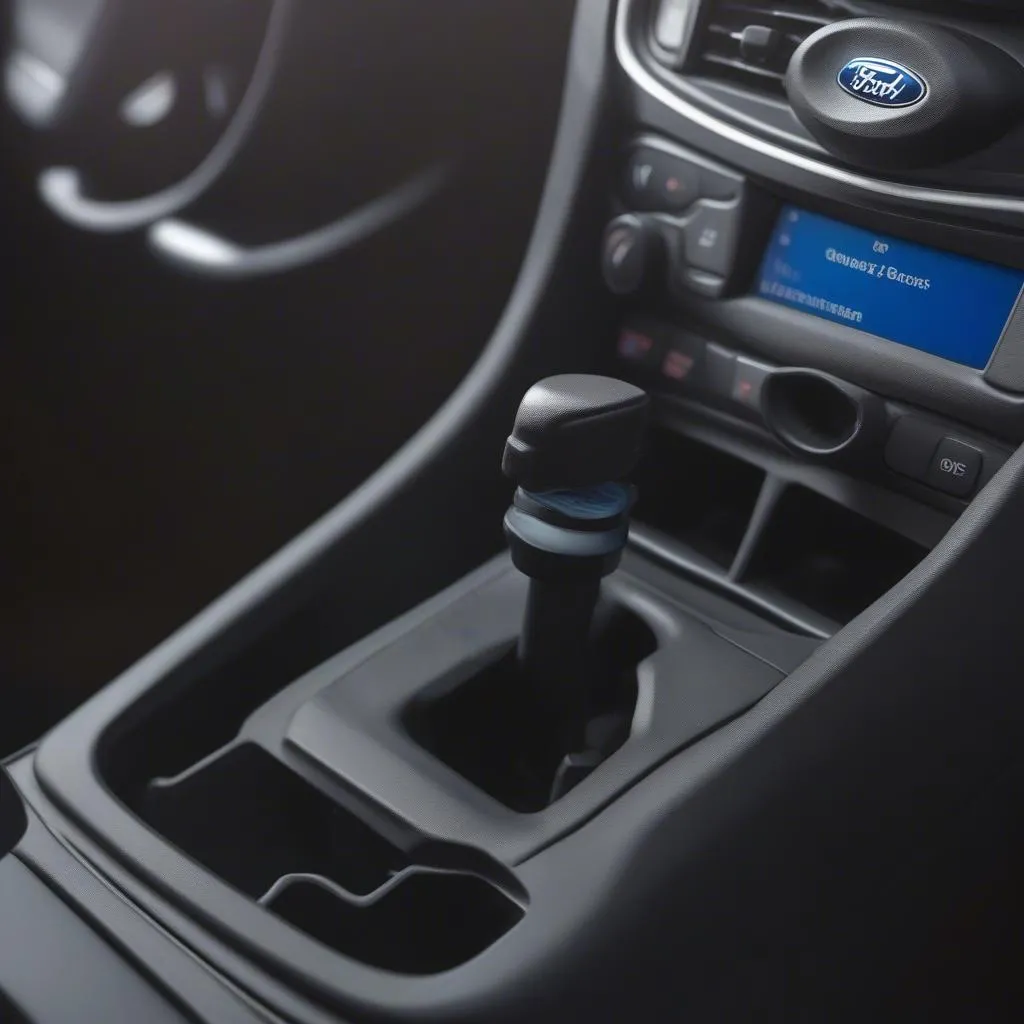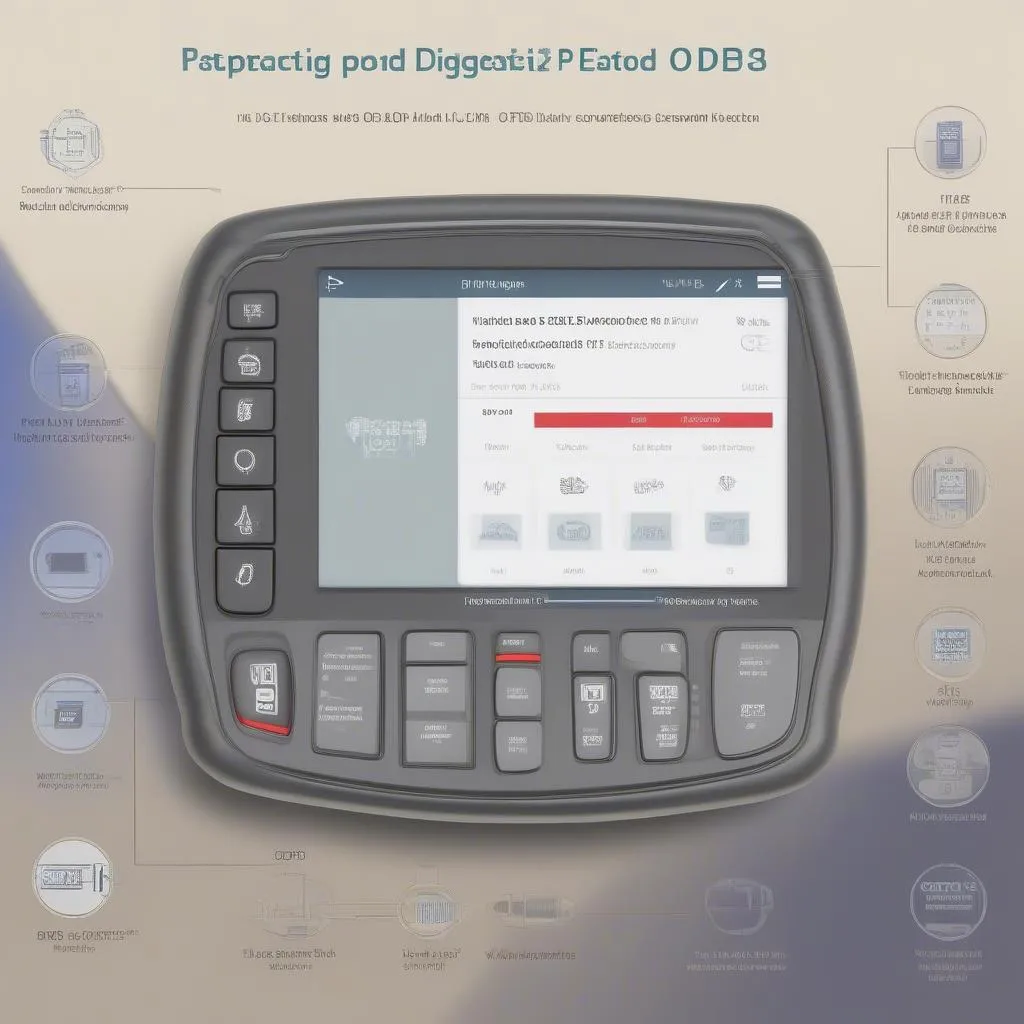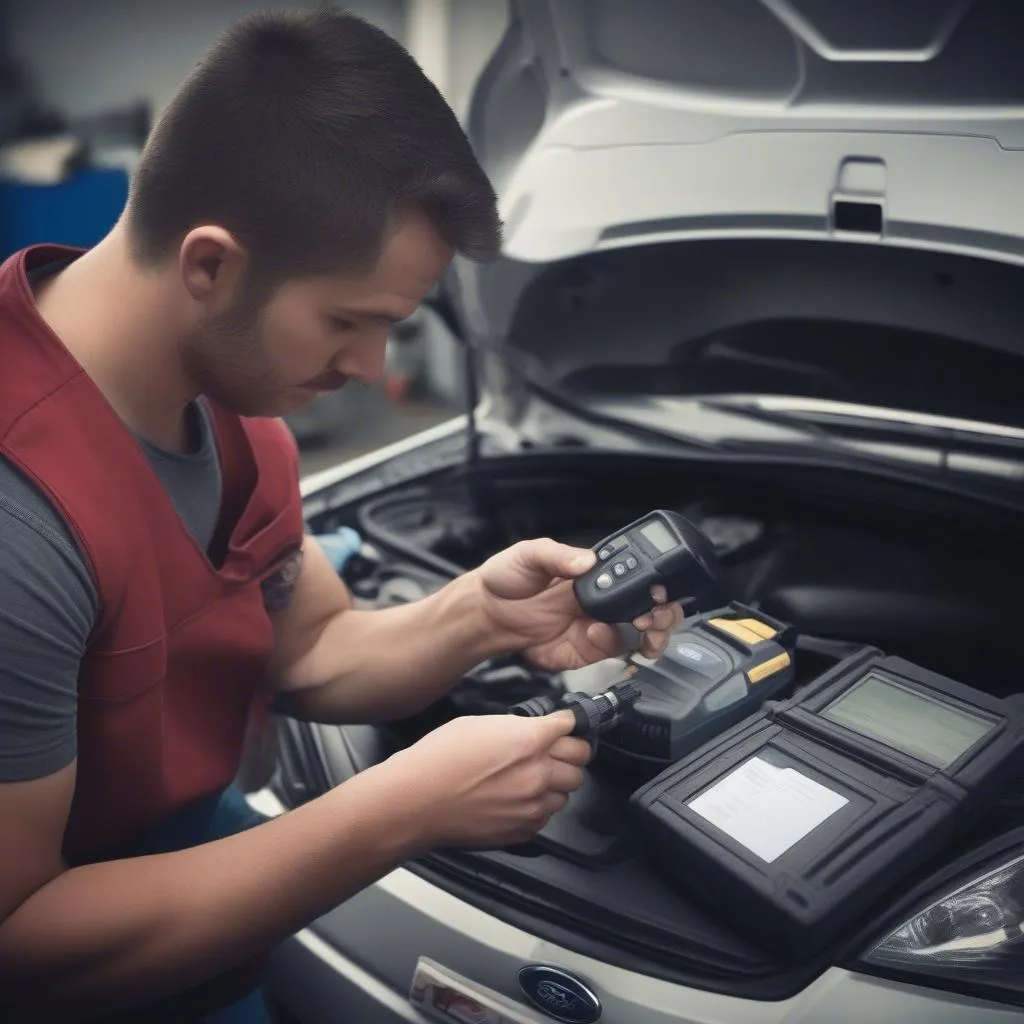Have you ever wondered what that small, rectangular port hidden beneath your dashboard is? It’s a lifeline for any mechanic or car enthusiast, offering a glimpse into your car’s vital systems. Today, we’re diving deep into the world of Focus Obd Ports, exploring its secrets and how it can help you understand and troubleshoot your vehicle like a pro.
What is a Focus OBD Port?
The term “OBD” stands for On-Board Diagnostics, and it’s a system designed to monitor your car’s performance and emissions. Think of it as a sophisticated “check engine light” that can provide detailed information about what’s happening under the hood. The Focus OBD port acts as the bridge between your car’s computer and diagnostic tools, allowing you to access and analyze data that can help you identify problems and make informed decisions.
Why is the Focus OBD Port Important?
The Focus OBD port is crucial for a myriad of reasons, making it a valuable asset for both professionals and car owners alike. Here are some key benefits:
- Troubleshooting: Imagine your check engine light suddenly pops up, and you’re left scratching your head. With a Focus OBD port and a compatible diagnostic tool, you can access real-time data to pinpoint the root cause of the problem, saving you time and money in the long run.
- Performance Optimization: The OBD port can be used to monitor various performance parameters such as fuel consumption, engine temperature, and acceleration, offering insights that can help you optimize your driving habits and enhance your car’s efficiency.
- Emissions Testing: The OBD port plays a vital role in emissions testing. By providing access to critical data, mechanics can determine if your vehicle meets environmental standards.
- Customization: For tech-savvy enthusiasts, the Focus OBD port opens a door to customization. With the right tools, you can reprogram parameters like the speed limiter, shift points, and even enable hidden features, turning your everyday car into a performance beast.
Finding the Focus OBD Port: A Simple Task
While some older vehicles may have hidden the OBD port in more intricate places, newer Ford Focus models generally place it in a convenient location for easy access.
** OBD Port**
OBD Port**
Where to find it:
- Under the Dashboard: The most common location for the OBD port is under the dashboard, often on the driver’s side, near the steering column.
- Center Console: In some models, you might find it tucked away in the center console, between the seats.
- Passenger Side: While less common, you might find it on the passenger side of the dashboard.
Accessing Your Focus OBD Port: A Guide for Beginners
- OBD2 Scanner: The most common tool used to connect to the OBD port is an OBD2 scanner, which is readily available online or at auto parts stores. These scanners can range from simple, budget-friendly models that display basic codes to more advanced versions that provide detailed diagnostics and even allow you to reset codes.
- Smartphone Apps: There are several smartphone apps that connect to the OBD port through a Bluetooth adapter. These apps can read codes, monitor data, and even offer additional features like trip tracking and performance analysis.
- Dealer Level Scanners: For professionals and serious enthusiasts, dealer-level scanners offer an even deeper level of diagnostics. These powerful tools can access a wider range of information and perform more advanced functions, such as reprogramming the car’s computer.
Understanding Diagnostic Codes: Unlocking the Secrets of Your Car
When you connect a diagnostic tool to the Focus OBD port, it can retrieve diagnostic codes that indicate potential problems. These codes are standardized across different car manufacturers, making it easier to understand the underlying issues.
Common Diagnostic Codes:
- P0171: System Too Lean (Bank 1): This code indicates that the engine’s air-fuel mixture is too lean, potentially caused by a faulty oxygen sensor, air leak, or fuel delivery problem.
- P0300: Random/Multiple Cylinder Misfire Detected: This code suggests that one or more cylinders are misfiring, potentially due to faulty spark plugs, ignition coils, or fuel injectors.
- P0420: Catalyst System Efficiency Below Threshold (Bank 1): This code indicates an issue with the catalytic converter, possibly caused by a faulty oxygen sensor, a clogged converter, or an air leak.
Troubleshooting Your Focus with Confidence
Once you have identified the diagnostic code, you can start troubleshooting the problem.
Here are some common tips:
- Check Engine Light: Make sure the check engine light is illuminated on the dashboard. This indicates that a fault code has been stored.
- Code Reading: Use an OBD2 scanner or a smartphone app to read the diagnostic code.
- Code Interpretation: Consult a repair manual or online resources to understand the meaning of the code.
- Inspection: Inspect the relevant components, such as sensors, wiring, and connectors, for signs of damage or wear.
- Resetting Codes: Once you have addressed the underlying problem, use your diagnostic tool to clear the code and reset the check engine light.
** OBD2 Scanner**
OBD2 Scanner**
Remember, this is a general guide, and specific solutions may vary depending on the exact problem. It’s always best to consult a qualified mechanic if you’re unsure about how to address a particular diagnostic code.
Focus OBD Port: A Door to Exploration and Efficiency
The Focus OBD port is not just a tool for diagnosing problems. It’s a portal into the heart of your car, offering insights into its performance and efficiency. Whether you’re a seasoned mechanic or a curious car owner, understanding the Focus OBD port and its capabilities can help you make informed decisions, improve your driving experience, and potentially save you money in the long run.
Further Reading:
- 2013 Ford Focus OBD Port
- 2003 Ford Focus OBD Port Location
- 1999 Ford Focus OBD Location
- Ford Focus OBD Port
- Ford Focus 2017 OBD Location
Need Help?
If you’re struggling with your Focus OBD port or need assistance with diagnostics, don’t hesitate to reach out! Our team of experienced technicians is available 24/7 via Whatsapp at +84767531508 to help you with all your car maintenance needs.
** Ford Focus Mechanic**
Ford Focus Mechanic**
Let’s keep your Focus running smoothly and efficiently!
